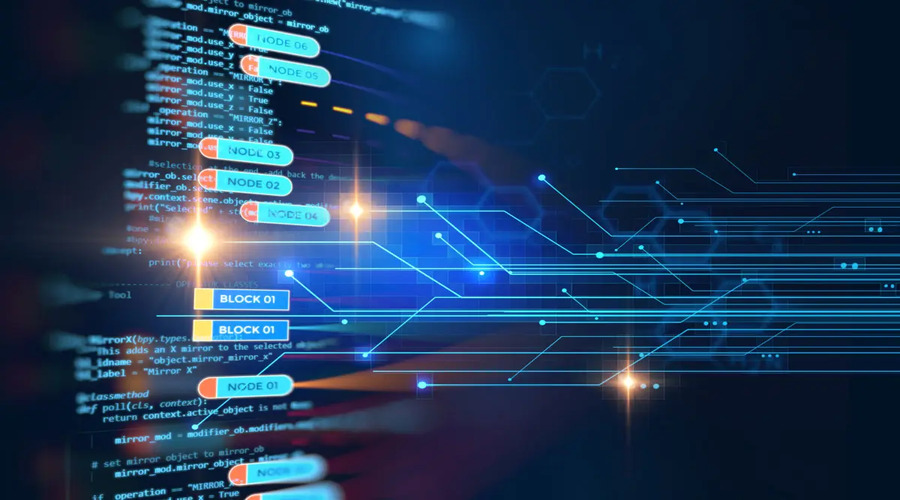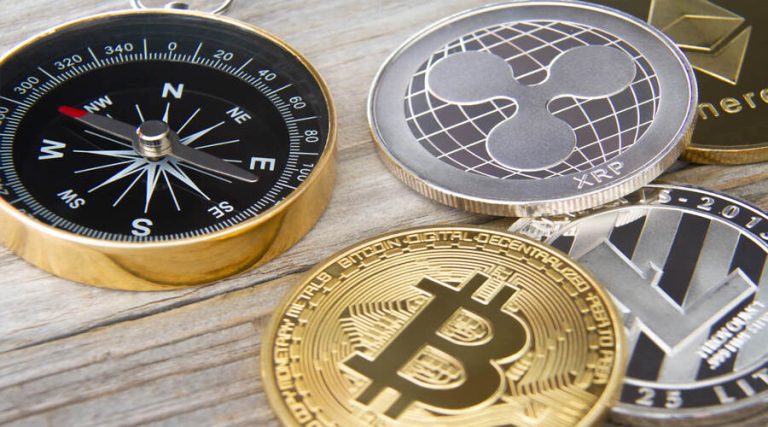
Exploring the Advantages of Blockchain in Gaming
Blockchain technology has garnered significant attention in recent years due to its potential to revolutionize various industries. One sector where blockchain is increasingly making an impact is gaming. By leveraging the unique capabilities of blockchain, gaming platforms can enhance security, enable true ownership of in-game assets, facilitate transparent and fair gameplay, enable cross-platform interoperability, empower players with rewards, and even transform game development and publishing. In this article, we will explore the advantages of blockchain in gaming and the potential it holds for the future of the industry.
Introduction
The rapid growth of the gaming industry has led to new challenges, such as security concerns, lack of true ownership of in-game assets, and limited interoperability between platforms. Blockchain technology offers solutions to these challenges by providing a decentralized and transparent framework for recording and verifying transactions. With blockchain, gamers can experience enhanced security, true ownership of assets, fair gameplay, and more.
Understanding Blockchain Technology
Before diving into the advantages of blockchain in gaming, let’s briefly understand what blockchain technology is. At its core, blockchain is a decentralized and distributed ledger that records transactions across multiple computers. Each transaction, or “block,” is securely linked to the previous one, forming a chain. This immutability and transparency make blockchain ideal for applications that require trust and security.
Blockchain in Gaming: An Overview

In the gaming industry, blockchain technology is being harnessed to overcome various limitations and create new possibilities. Let’s explore some of the key advantages it offers:
Enhancing Security and Trust
Blockchain brings a new level of security and trust to gaming platforms. By recording transactions on a decentralized ledger, blockchain eliminates the risk of tampering or fraud. Here are two ways blockchain enhances security:
Immutable Transaction Records
Every transaction made in a blockchain-based game is recorded on the blockchain and cannot be altered. This creates a transparent and immutable record of all in-game transactions, ensuring fairness and preventing fraudulent activities.
Eliminating Fraud and Cheating
Blockchain technology can eliminate cheating and fraud by enabling verifiable gameplay. Smart contracts, self-executing agreements stored on the blockchain, can ensure that game rules are followed and prevent unauthorized modifications.
Enabling True Ownership of In-Game Assets
Traditionally, players have limited control over in-game assets and can’t transfer or trade them outside of the game environment. Blockchain introduces the concept of non-fungible tokens (NFTs) and decentralized marketplaces, enabling true ownership and value creation.
Non-Fungible Tokens (NFTs)
NFTs are unique digital assets that represent ownership of a specific item or piece of content. In gaming, NFTs can represent rare weapons, skins, characters, or even virtual real estate. With NFTs, players have true ownership and can freely trade or sell their digital assets.
Decentralized Marketplaces
Blockchain enables decentralized marketplaces where players can buy, sell, and trade their NFTs directly. These marketplaces remove intermediaries and give players full control over their assets, fostering a vibrant and player-driven economy.
Facilitating Transparent and Fair Gameplay
Blockchain introduces mechanisms to ensure transparent and fair gameplay, benefiting both players and developers. Here are two ways blockchain achieves this:
Verifiable Randomness
Randomness is crucial in many games, such as loot drops or card draws. Blockchain-based solutions use cryptographic algorithms to generate verifiable random numbers, eliminating the possibility of manipulation and ensuring fairness.
Preventing Game Manipulation
Blockchain can prevent game manipulation by decentralizing game logic and storing it on the blockchain. This prevents developers from making unauthorized changes to game rules and ensures that players can trust the integrity of the game.
Enabling Cross-Platform Interoperability
Blockchain has the potential to enable seamless interoperability between different gaming platforms, allowing players to transfer their assets and progress across games and ecosystems. Here are two ways blockchain facilitates cross-platform interoperability:
Seamless Item Transfer
With blockchain, players can transfer their in-game assets across different games or platforms. For example, a rare sword earned in one game can be used in another, increasing its utility and value.
Interconnected Gaming Ecosystems
Blockchain technology can create interconnected gaming ecosystems where players can seamlessly move between games, retaining their progress and assets. This opens up new possibilities for collaborative gameplay and shared experiences.
Empowering Players with Rewards and Incentives
Blockchain-based gaming platforms can reward players with digital tokens, giving them tangible value for their time and skills. Here are two ways players benefit from blockchain rewards:
Tokenization of Rewards
By tokenizing in-game rewards, players can earn digital tokens that hold real-world value. These tokens can be traded, sold, or used to unlock additional in-game content, creating new opportunities for players to monetize their gaming skills.
Play-to-Earn Models
Blockchain-powered games can implement play-to-earn models, where players earn tokens for their in-game achievements. This allows players to generate income while playing and incentivizes skill development and engagement.
Revolutionizing Game Development and Publishing
Blockchain technology introduces new possibilities for game development and publishing models, empowering both developers and players. Here are two ways blockchain is transforming the gaming industry:
Decentralized Autonomous Organizations (DAOs)
DAOs are blockchain-based organizations governed by smart contracts and community voting. In gaming, DAOs can empower players to have a say in game development, funding decisions, and community initiatives, fostering a more inclusive and player-centric environment.
Community Governance and Funding
Blockchain enables crowdfunding of game development through initial coin offerings (ICOs) or token sales. This allows developers to secure funding directly from the community, creating a more democratic and decentralized approach to game development.
Challenges and Considerations
While blockchain technology holds great promise for the gaming industry, there are still challenges and considerations that need to be addressed. Some of the key challenges include:
- Scalability and Transaction Speed: Blockchain networks may face scalability issues and slower transaction speeds compared to traditional gaming infrastructures. Ongoing research and development aim to address these limitations.
- User Experience and Adoption: For blockchain gaming to reach mass adoption, user interfaces and experiences need to be seamless and user-friendly. Simplifying the onboarding process and educating users about the benefits of blockchain gaming are crucial for wider adoption.
The Future of Blockchain in Gaming
The advantages of blockchain in gaming are just the beginning. As the technology evolves and matures, we can expect to see further integration of blockchain in gaming ecosystems. The future holds the potential for more immersive, player-driven experiences, decentralized governance models, and innovative gameplay mechanics.
Enabling Player-driven Economies
Blockchain technology revolutionizes the concept of player-driven economies in gaming. With decentralized item trading, players have the freedom to buy, sell, and trade in-game items directly with each other. This opens up new opportunities for players to engage in vibrant virtual marketplaces where they can set their own prices and negotiate transactions. Additionally, blockchain enables player-created content and marketplaces, allowing gamers to showcase their creativity by developing unique in-game assets, such as skins, mods, or even entire game levels. These player-generated creations can be traded and monetized, giving rise to a new wave of entrepreneurship within the gaming community.
Enhancing Digital Rights Management
Digital rights management (DRM) is a crucial aspect of the gaming industry, and blockchain technology offers innovative solutions to protect intellectual property and manage royalties. Through blockchain-based DRM systems, game developers can ensure that their creations are protected from unauthorized replication and distribution. Blockchain provides a secure and immutable record of ownership and transactions, making it easier to track and enforce copyright claims. Additionally, blockchain can streamline royalty management by automating the distribution of earnings to developers, artists, and other stakeholders. This ensures fair compensation and incentivizes creativity and innovation in the gaming industry.
Expanding Opportunities for Indie Developers
Blockchain technology holds immense potential in expanding opportunities for independent game developers. Traditionally, indie developers face significant barriers to entry, including limited access to funding and distribution channels. Blockchain, with its decentralized nature, offers an alternative funding model through initial coin offerings (ICOs) or token sales. This allows indie developers to directly engage with the gaming community, secure funding, and build a supportive player base. Furthermore, blockchain platforms provide a direct channel for indie developers to connect with players, gather feedback, and iterate on their games. This fosters a more inclusive and collaborative development process, empowering indie developers to create unique and innovative gaming experiences.
Social Impact and Giving Back
Blockchain gaming has the potential to create positive social impact and contribute to charitable causes. Through blockchain-based games, players can engage in charitable initiatives where in-game actions or transactions contribute to real-world donations. For example, players may be rewarded with digital tokens for achieving certain milestones in the game, and a portion of these tokens can be automatically donated to a chosen charity. This not only incentivizes players to participate in gaming activities but also allows them to contribute to meaningful causes. Additionally, blockchain gaming can empower underrepresented communities by providing them with a platform to showcase their talents and engage in a supportive gaming ecosystem, promoting diversity and inclusion in the gaming industry.
Conclusion
Blockchain technology is revolutionizing the gaming industry by providing enhanced security, true ownership of assets, transparent gameplay, cross-platform interoperability, player rewards, and new development and publishing models. While challenges exist, the potential of blockchain in gaming is vast and holds the promise of transforming the industry. Embracing blockchain can lead to a more inclusive, fair, and engaging gaming environment for players worldwide.
Victoria spent the last year and a half I have been working for coinjet.info, a cryptocurrency news site, covering all breaking news content.

